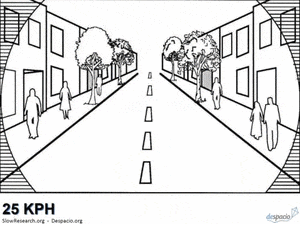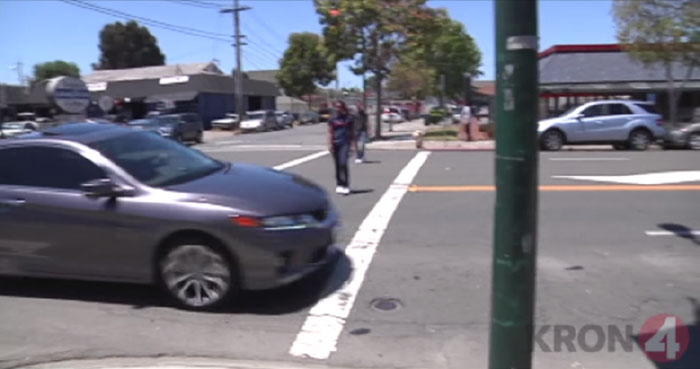Stanley Roberts’ People Behaving Badly recently highlighted CHP efforts to ticket Alameda drivers on Webster Street who failed to yield to pedestrians at marked crosswalks. In just 3.5 hours, CHP officers issued 168 tickets to drivers – a mind-boggling rate of a violation every 75 seconds. As Roberts notes at the beginning of the segment, CHP officers were so busy that there were not enough officers to ticket all offenders.
Unfortunately, these violations are not unique to Webster Street, or Alameda; they are pervasive throughout unprotected crossings of four lane streets across the country. As speed and street width increase, pedestrians become less visible to drivers, so fewer drivers yield (as one driver notes in the segment, he didn’t even see the pedestrian until it was too late). Failure to yield is therefore a direct consequence of highway-like design features that prioritize speeding over safe pedestrian crossings. This choice can have disastrous consequences for the safety of people walking. Unsurprisingly, Webster has one of Alameda’s highest rates of pedestrian-involved collisions, and its walkability suffers as a result.





 AI-search
AI-search  Email
Email